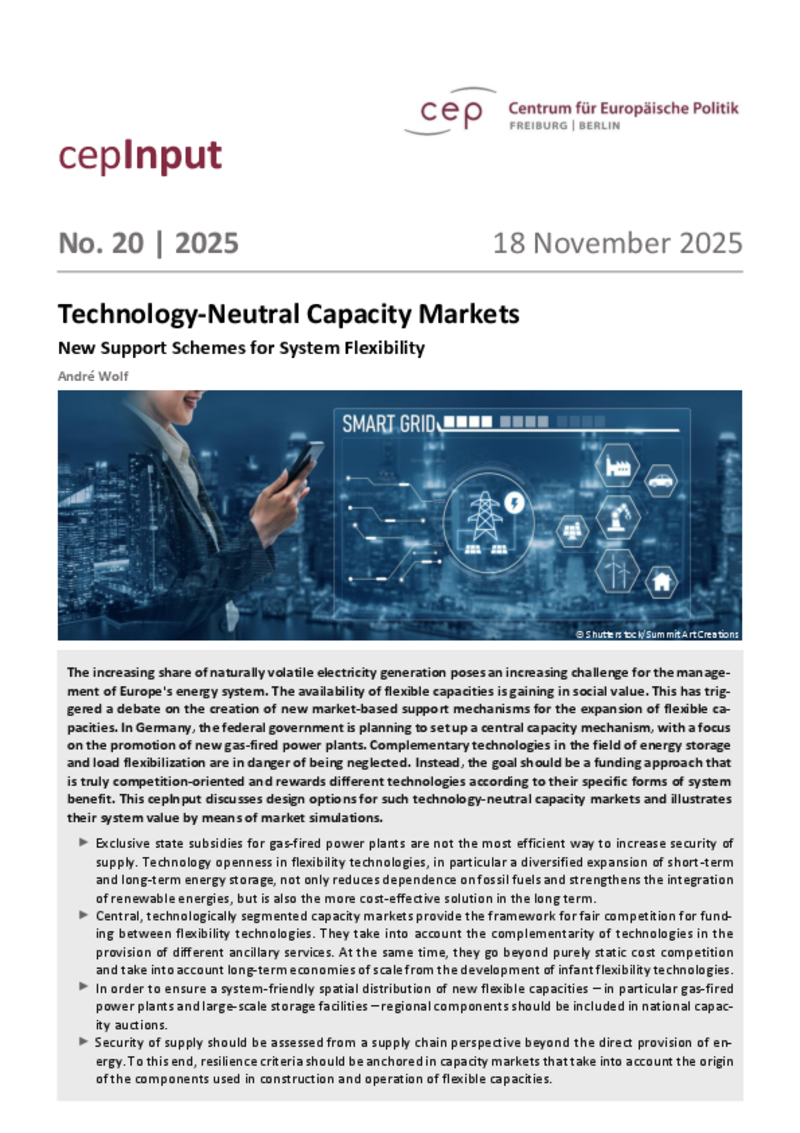
Energy
Technology-Neutral Capacity Markets
cepInput
"The transition of the European energy supply towards climate-neutral electricity production poses new challenges for policymakers and markets," says cep economist André Wolf, who authored the study. The current "energy-only" market model in Germany, which only remunerates electricity that is actually generated, is no longer able to cope with the growing problem of weather-related fluctuations in renewable energies. There is a lack of economic incentives for the expansion of flexible generation and storage technologies that reflect the systemic value of their flexibility.
In Germany, the situation is exacerbated by the rapid expansion of volatile wind and solar energy, the simultaneous phase-out of fossil fuel-based base load generation and rising electricity demand due to the electrification of industry. However, the measure decided by the German government to provide separate funding for new gas-fired power plants is only a short-term solution. It raises concerns under European law, as the EU requires technology-neutral funding mechanisms based on objective criteria. "An efficient path to security of supply requires technological competition with the aim of achieving optimal technological synergies: unilateral support for gas-fired power plants is not the cost-effective solution for Germany. Gas-fired power plants are important as a backup for periods of low wind and lack of sunlight. However, the integration of renewables also requires time-flexible storage and final demand," says Wolf.
A diversified expansion of energy storage and other flexibility technologies reduces dependence on fossil fuels and strengthens the integration of renewable energies. According to simulation calculations, this expansion is also more economical in the long term, as it exploits the cost-reduction potential of scaling up new storage technologies. Wolf therefore recommends technologically segmented capacity markets that enable the system integration of a variety of storage and other flexibility technologies. "The promotion of energy storage should not be limited to short-term battery storage: more capacity is also needed for medium to long-term balancing of generation fluctuations." Centralised but technologically differentiated capacity markets create fair competitive conditions and consider the complementarity of different technologies.
Download PDF
| Technology-Neutral Capacity Markets (publ. 11.18.2025) | 1 MB | Download | |
 | |||


